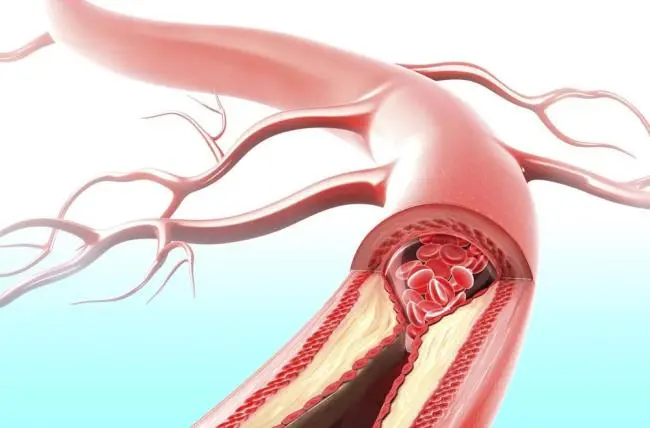Alzheimer's disease is hereditary

If you tested your DNA with a personal genomics service like 23andMe, AncestryDNA, FamilyTreeDNA, MyHeritage or another testing company, you can learn more about your risk factors for hundreds of diseases. By clicking the button above ⬆️, you can upload your raw DNA data file and receive a personalized 250-page health report with research links that is the most comprehensive.
Alzheimer's disease is a degenerative brain disease that causes dementia, resulting in a gradual loss of memory, judgment, and ability to function. This disorder typically manifests in individuals over the age of 65, although less common forms of the disease may appear earlier in adulthood.
Memory loss is the most prevalent indication of Alzheimer's disease. Initially, forgetfulness may be inconspicuous, but as time passes, memory loss worsens to the point where it hinders most daily activities. Even in familiar surroundings, individuals with Alzheimer's disease may become lost or confused. Simple tasks such as cooking, washing clothes, and performing household chores can become challenging. Furthermore, recognizing people and naming objects may become difficult. Those affected will increasingly require assistance with dressing, eating, and personal hygiene.
Some cases of early-onset Alzheimer's disease are caused by gene variants, also known as mutations, that can be inherited from parents. This results in a condition called early-onset familial Alzheimer's disease (FAD). Researchers have discovered that this form of the disorder can be caused by variants in the APP, PSEN1, or PSEN2 genes. When any of these genes are altered, large amounts of a toxic protein fragment called amyloid beta peptide are produced in the brain. This peptide can accumulate in the brain, forming clumps known as amyloid plaques, which are a hallmark of Alzheimer's disease. The buildup of toxic amyloid beta peptide and amyloid plaques can cause nerve cell death and the gradual onset of symptoms associated with this disorder. Other cases of early-onset Alzheimer's disease may be linked to changes in different genes, some of which have yet to be identified.
Alzheimer's disease is likely linked to variations in one or more genes, in combination with lifestyle and environmental factors. One gene, called APOE, has been extensively studied as a risk factor for the disease. Specifically, a variant of this gene, known as the e4 allele, appears to increase an individual's risk of developing late-onset Alzheimer's disease.
There are other genes that can cause late-onset disorders. These genes may not be expressed until later in life, and can lead to conditions such as Alzheimer's disease or Parkinson's disease. It is important to understand the role of these genes in order to develop effective treatments and preventative measures.
As gene research progresses, researchers are discovering connections between late-onset Alzheimer's and several other genes. Some examples include:
ABCA7. This gene appears to be associated with an increased risk of Alzheimer's disease. Scientists suspect that this may be related to the gene's function in cholesterol metabolism within the body.
CLU is a gene that assists the brain in eliminating the protein known as amyloid-beta. Studies indicate that an inequity in the production and removal of amyloid-beta is a crucial factor in the development of Alzheimer's disease.
CR1. Insufficient production of the protein encoded by this gene may lead to chronic inflammation and irritation in the brain, which is known as inflammation. Inflammation is also considered a potential contributing factor to the development of Alzheimer's disease.
PICALM is a gene that is associated with the communication between neurons in the brain. The way in which neurons communicate is crucial for their proper functioning and the formation of memories.
Scientists do not know much about the role of PLD3 in the brain, but it has recently been linked to a significantly increased risk of Alzheimer's disease.
TREM2 is a gene that affects how the brain responds to swelling and irritation, which is known as inflammation. Rare alterations in this gene have been linked to a higher risk of developing Alzheimer's disease.
SORL1: Some forms of SORL1 on chromosome 11 appear to be linked to Alzheimer's disease.
Numerous genes have been linked to Alzheimer's disease, and scientists are exploring the potential impact of other genes on the risk of developing Alzheimer's disease.
Follow the link of the selected polymorphism to read a brief description of how the selected polymorphism affects Alzheimer's disease and see a list of existing studies.
SNP polymorphisms related to the topic Alzheimer's disease:
| rs2298813 | Variation in the SORL1 gene is associated with hippocampal and brain atrophy and Alzheimer's disease. |
| rs1476679 | The ZCWPW1 polymorphism is associated with late-onset Alzheimer's disease. |
| rs7561528 | The rs7561528 polymorphism of the bridge integrator 1 gene contributes to susceptibility to Alzheimer's disease. |
| rs744373 | The rs744373 polymorphism of the BIN1 1.28-fold increase in Alzheimer's disease risk is associated with more rapid AV-associated tau accumulation and cognitive decline. |
| rs2373115 | The rs2373115 polymorphism of the GAB2-associated binding protein gene indicates an increased risk (4.1-fold) of late-onset Alzheimer's disease. |
| rs2075650 | The rs2075650 polymorphism of the TOMM40 gene contributes to the development of Alzheimer's disease and frontal temporal dementia in Caucasian and Asian populations. |
| rs17125944 | The rs17125944 FERMT2 polymorphism is associated with risk of developing Alzheimer's disease. |
| rs2718058 | The NME8 rs2718058 polymorphism increases the risk of developing Alzheimer's disease. |
| rs28834970 | The common PTK2B variant is associated with late-onset Alzheimer's disease. |
| rs2279590 | The CLU rs2279590 polymorphism contributes to susceptibility to Alzheimer's disease in Caucasian and Asian populations. |
| rs429358 | The APOE-E4 allele has a strong influence on the risk of developing Alzheimer's disease. One meta-analysis estimated the odds ratio for individuals homozygous for rs429358 to be 12 times higher for late-onset Alzheimer's disease and 61 times higher for early-onset disease. People with APOE4-4 allele C genotype should avoid eating animals raised on plants/grains that have higher levels of omega-6 compared to omega-3. It is advisable to practice vegetarianism to avoid all animal fats and measure the ratio of omega-3 to omega-6 in these people. Also, people with APOE 4 may do better on unmethylated forms of B12. |
| rs1799724 | Polymorphism rs1799724 of the tumour necrosis factor alpha gene in Alzheimer's disease. |
| rs242557 | High levels of cerebrospinal tau are associated with the rs242557 gene variant and a high risk of Parkinson's and Alzheimer's disease. |
| rs11771145 | Genetic variation in EPHA1 affects cerebrospinal fluid and neuroimaging biomarkers in people with Alzheimer's disease. |
| rs10838725 | Genetic variability at the CELF1 locus is genome-wide and is associated with Alzheimer's disease and obesity. |
| rs11754661 | Genetic alteration of the folate pathway affecting genomic methylation content. |
| rs3865444 | Association of the CD33 rs3865444 polymorphism with Alzheimer's disease pathology and CD33 expression in human cerebral cortex. |
| rs3764650 | Analysis of large-scale samples confirms an association between the ABCA7 rs3764650 polymorphism and susceptibility to Alzheimer's disease. |
| rs9349407 | Analysis of 54,936 samples confirms an association between the CD2AP rs9349407 polymorphism and susceptibility to Alzheimer's disease. |
| rs6656401 | An updated analysis of 85,939 samples confirms an association between the CR1 rs6656401 polymorphism and Alzheimer's disease. |
| rs75932628 | A polymorphism in the TREM2 gene on chromosome 6 resulting in an R47H substitution confers a significantly higher risk of late-onset Alzheimer's disease. |
| rs4420638 | A high-density, full-genome association study showed that APOE is a major susceptibility gene for sporadic late-onset Alzheimer's disease. |
| rs7274581 | |
| rs74615166 | |
| rs10498633 | |
| rs10792832 | |
| rs9969729 | |
| rs7920721 | |
| rs9331896 | |
| rs35349669 | |
| rs72807343 | |
| rs12989701 | |
| rs6733839 | |
| rs9381040 | |
| rs4676049 | |
| rs6859 | |
| rs190982 | |
| rs4937314 | |
| rs983392 | |
| rs11983798 | |
| rs6468852 | |
| rs9271192 | |
| rs10948363 | |
| rs561655 | |
| rs10972300 | |
| rs3785883 | |
| rs1864325 | |
| rs3785885 | |
| rs1981997 | |
| rs1467967 | |
| rs4647698 | |
| rs1800750 | |
| rs190788828 | |
| rs115550680 | |
| rs8070723 | |
| rs7412 | |
| rs9390537 | |
| rs2061333 | |
| rs2446581 | |
| rs11782819 | |
| rs17314229 | |
| rs12947764 | |
| rs157580 | |
| rs7081208 | |
| rs73660619 | |
| rs74006954 | |
| rs11023139 | |
| rs340635 | |
| rs4794202 | |
| rs11154851 | |
| rs538867 | |
| rs4700060 | |
| rs117964204 | |
| rs7009219 | |
| rs112724034 | |
| rs148763909 | |
| rs77636885 | |
| rs17393344 | |
| rs75617873 | |
| rs34972666 | |
| rs2421847 | |
| rs58370486 | |
| rs61144803 | |
| rs115102486 | |
| rs6738962 | |
| rs72832584 | |
| rs11218343 | |
| rs4938933 | |
| rs514716 | |
| rs7039300 | |
| rs2121433 | |
| rs6922617 | |
| rs610932 | |
| rs536841 | |
| rs249153 | |
| rs569214 | |
| rs1923775 | |
| rs727153 | |
| rs11136000 | |
| rs1532278 | |
| rs4746003 | |
| rs11610206 | |
| rs3851179 | |
| rs6509701 | |
| rs1562990 | |
| rs753129 | |
| rs3818361 | |
| rs10273775 | |
| rs690705 | |
| rs12044355 | |
| rs63750066 | |
| rs2227564 | |
| rs1160985 | |
| rs59007384 | |
| rs157581 | |
| rs157582 | |
| rs3781838 | |
| rs7946599 | |
| rs12364988 | |
| rs676759 | |
| rs3862605 | |
| rs726601 | |
| rs3781836 | |
| rs10892752 | |
| rs4420280 | |
| rs11218325 | |
| rs1784931 | |
| rs3781834 | |
| rs17125523 | |
| rs1422438 | |
| rs56131196 | |
| rs509208 | |
| rs9877502 | |
| rs1801277 | |
| rs10205233 | |
| rs17268434 | |
| rs16822607 | |
About The Author
Li DaliLi Dali, a National Foundation for Outstanding Youth Fund recipient, is a researcher at the School of Life Sciences in East China Normal University. He earned his PhD in genetics from Hunan Normal University in 2007 and conducted collaborative research at Texas A&M University during his doctoral studies. Li Dali and his team have optimized and innovated gene editing technology, leading to the establishment of a world-class system for constructing gene editing disease models.


